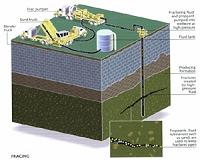| . |  |
. |
Dubai (AFP) Feb 2, 2010 US deployment of anti-missile defences off Iran's coast and in a number of its Gulf Arab neighbours is certain to fuel tensions in a strategic region that supplies a third of the world's oil, analysts say. "This will make Iran more nervous," said Mustafa Alani, head of security research at the Dubai-based Gulf Research Centre. To counter a perceived threat from a controversial Iranian nuclear programme and Tehran's advancing missile capabilities, Washington has said it is deploying anti-missile weapons systems in the region. The move is unlikely to please Iran, which has already warned its Arab neighbours in the Gulf not to take part in US moves against the Islamic republic. But Tehran is likely to take comfort from the announcement in Washington that the US military failed on Sunday to shoot down a ballistic missile in a test resembling an Iranian or North Korean strike. On Tuesday, Tehran slammed the US plans, insisting Iran poses no danger to its Arab neighbours which had more to fear from Washington's interference in the region. "American officials do not realise that they are the problems in the region. The more equipment you bring in, the more it worries the countries where they are deployed," parliament speaker Ali Larijani said. "Has Iran ever committed any aggression against any neighbours or the region?" he asked. The US administration is reportedly placing specialised ships with missile-targeting capabilities off Iran's coast, and anti-missile systems in at least four Gulf states -- Bahrain, Kuwait, Qatar and the United Arab Emirates. Saudi Arabia has long had the Patriot missile defence system, while the UAE placed an order in 2008. Bahrain is also home to the US Navy Fifth fleet, Qatar hosts the US Central Command (CENTCOM) and Kuwait has a large US military base. "Iranians will interpret this as an opening shot in the intensification of US military agenda," said Professor Anoush Ehteshami, Iran and Gulf expert at Durham University in Britain. "Tehran will see this as America putting indirect pressure on Iran by extending the security umbrella over Iran's neighbours," he told AFP by telephone. The US administration has not publicly spoken about the reasons for the deployment. But the New York Times quoted a senior administration official as saying that the moves were meant to deter Iran, and to reassure Israel, which is Tehran's regional arch-foe. "Our first goal is to deter the Iranians," the unidentified official told the newspaper on Saturday. "A second is to reassure the Arab states, so they don't feel they have to go nuclear themselves. But there is certainly an element of calming the Israelis as well," he was quoted as saying. The US moves follow the failure of UN-led nuclear talks in Vienna between Iran and six major powers. Last month at the talks, Iran refused to forego its uranium enrichment, leaving itself open to international sanctions. Tehran insists that its nuclear programme is peaceful, but there are suspicions in the West that it may also be working on a covert nuclear bomb. On Sunday, a radar malfunction was blamed for the failure of a US military test to intercept a ballistic missile resembling an Iranian or North Korean strike. Washington is seeking to win over its allies to slap a fourth set of UN sanctions on Iran that would target Iran's elite Revolutionary Guards, which it believes controls the military aspect of Tehran's nuclear programme. Alani said Washington is aiming to contain Iran's threat, if it were to act militarily, by limiting its missile capabilities. "The only strategic asset for Iran is the Shahab (ballistic) missile system. The Americans have decided now to take this advantage out, through paralysing it with an anti-missile system in the region," he said. General David Petraeus, head of CENTCOM which oversees US military operations stretching from the Gulf to Central Asia, said the accelerated deployment of missile systems included eight Patriot missile batteries, "two in each of four countries." The United States was also keeping Aegis guided missile cruisers, equipped with advanced radar and anti-missile systems that can intercept medium-range missiles, on patrol in the Gulf at all times, according to Petraeus.
Share This Article With Planet Earth
Related Links Powering The World in the 21st Century at Energy-Daily.com
 Walker's World: Russia's 'fracked' future
Walker's World: Russia's 'fracked' futureMoscow (UPI) Feb 1, 2009 For most of the past decade, Russian leaders and their top officials and businessmen have believed that their huge reserves of oil and gas would guarantee them prosperity and global influence for decades to come. But suddenly some cracks are emerging in that confidence. As often happens, technology is changing the conventional wisdom. Over the past five years the combination of two tech ... read more |
|
| The content herein, unless otherwise known to be public domain, are Copyright 1995-2010 - SpaceDaily. AFP and UPI Wire Stories are copyright Agence France-Presse and United Press International. ESA Portal Reports are copyright European Space Agency. All NASA sourced material is public domain. Additional copyrights may apply in whole or part to other bona fide parties. Advertising does not imply endorsement,agreement or approval of any opinions, statements or information provided by SpaceDaily on any Web page published or hosted by SpaceDaily. Privacy Statement |